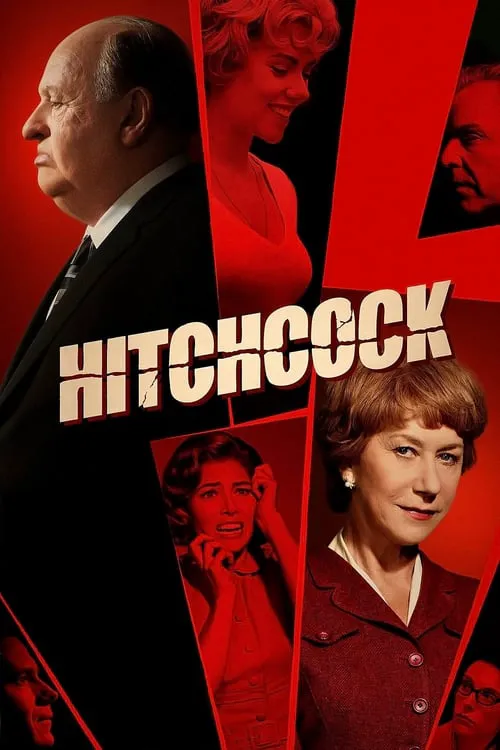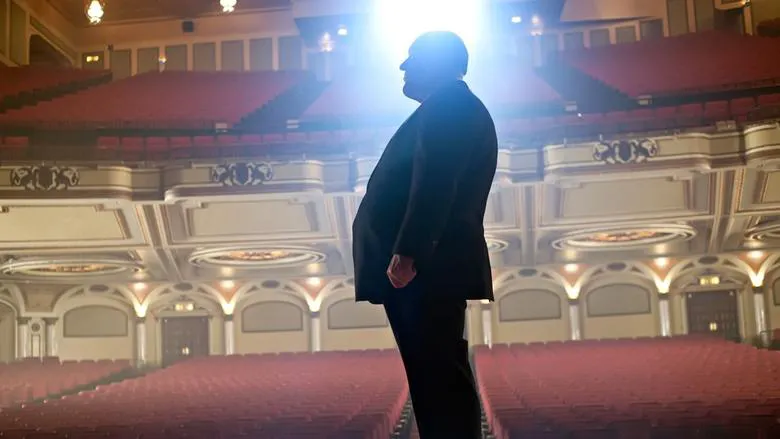Hitchcock

Plot
The film "Hitchcock" offers a fascinating and behind-the-scenes glimpse into the making of the iconic thriller "Psycho." The movie is as much about the creative process as it is about the couple behind it, Alfred and Alma Hitchcock. At the heart of the story lies a pivotal moment in the career of Alfred Hitchcock, a master filmmaker known for crafting suspenseful and unpredictable narratives. After the massive success of "North by Northwest," the film industry's biggest players are eager to greenlight Hitchcock's next project, but one film catches his attention: Robert Bloch's novel "Psycho." This unsettling novel is about a disturbed individual with a penchant for taxidermy and a penchant for murdering young women. The book's raw, unflinching portrayal of a serial killer fascinates Hitchcock, who envisions it as the perfect vehicle for his cinematic expertise. However, when the studio declines to finance "Psycho," considering it too dark and unmarketable for mainstream audiences, Hitchcock makes an impulsive decision – he will bankroll the film himself in exchange for a percentage of the profits. The production of "Psycho" becomes an intense and tumultuous experience for the Hitchcocks. Alma, Alfred's supportive and resourceful wife, is initially hesitant about her husband's decision, fearing the film's graphic content might harm the studio's image. Despite her reservations, she stands by Hitchcock's vision and helps him in any way she can. Their relationship is put to the test as the demands of creating such an unsettling picture take its toll on both of them. One of the central themes explored in "Hitchcock" is the impact that Alma has on Alfred both personally and professionally. A seasoned film editor and scriptwriter in her own right, she is Alfred's trusted confidant, a sounding board for his ideas, and a vital contributor to his creative process. Her expertise and insight provide valuable perspectives, which often help to elevate his storytelling. Their partnership is remarkable, with Alfred frequently citing her as one of his main collaborators and a source of inspiration. When the pressure to bring "Psycho" into fruition mounts, the couple's relationship faces a significant challenge as their contrasting views on filmmaking and life strain their bond. An additional crucial component in "Hitchcock" is its portrayal of Hitchcock as an innovator and a showman. Known for pushing the boundaries of what was deemed acceptable in mainstream cinema, he masterfully crafts suspenseful scenes that keep audiences on the edge. He often incorporated his love of pranks and dark humor into his work, creating characters whose unpredictability captivates spectators. This aspect of the film highlights how Alfred's eccentricities and obsession with cinema ultimately shape the making of "Psycho." As filming begins, Hitchcock meticulously constructs set pieces that will captivate and disturb his viewers. His meticulous approach ensures that each aspect of the film from music to lighting to editing contributes to the overall tension and shock. In contrast, the character of Robert Bloch, who wrote the novel on which "Psycho" was based, observes and is increasingly enthralled by the film adaptation. A pivotal moment occurs when Hitchcock and his crew travel to Phoenix in the sweltering heat to film a segment of the movie, further increasing the tension that's growing as they struggle to cope with the harsh conditions. This intense scene foreshadows the challenges the couple will face in making the film as well as the tension that develops between Hitchcock and the studio. The making of "Psycho" is not only a groundbreaking cinematic achievement but also an intense and grueling experience that profoundly affects the Hitchcocks' lives and relationship. As this film's climax nears, a series of personal and creative crises test the couple's resolve, ultimately forcing them to confront the darker side of their ambitions. In the end, "Hitchcock" presents a poignant tribute to the power of filmmaking, the complexity of a marriage, and the vision of one of cinema's greatest masterminds.
Reviews
Recommendations





